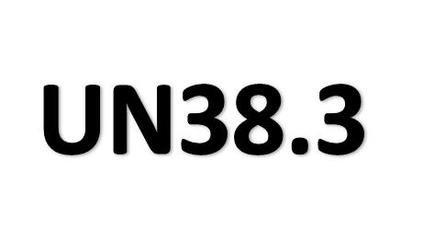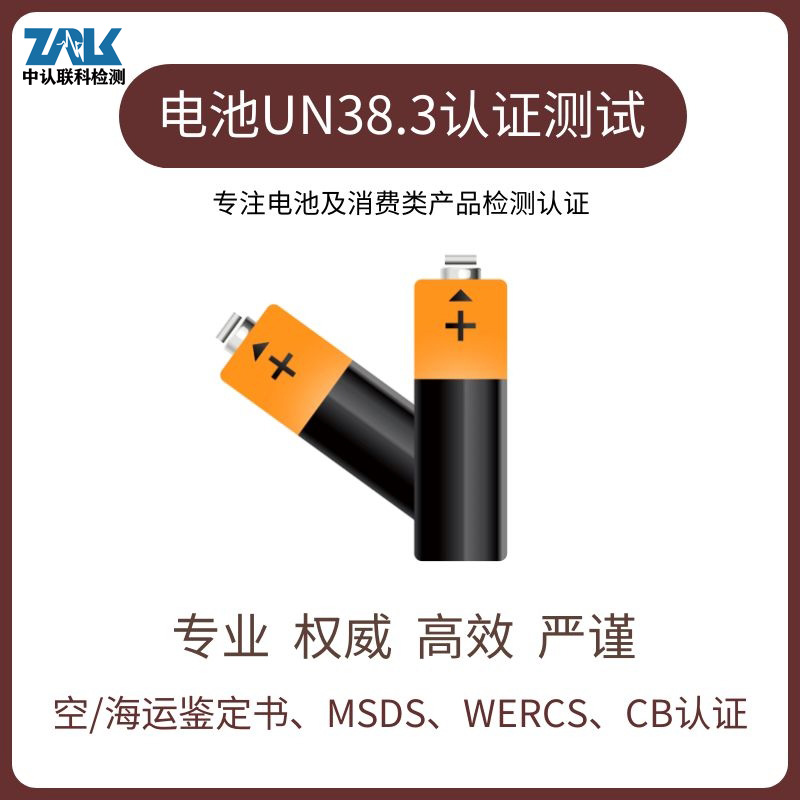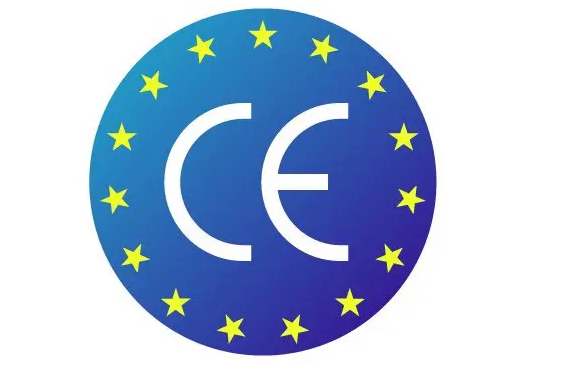With the rapid development of technology, electronic devices have become an indispensable part of our lives. As a core component of many convenient electronic products, the safety and reliability of square batteries have also received much attention. In the safety certification of square batteries, UN38.3 certification is undoubtedly an important "escort". What is UN38.3 certification? What documents do I need to prepare to apply for UN38.3 certification? What is the process? Next, let ZRLK help you unravel these puzzles.
What is UN38.3 certification?
UN38.3 certification actually refers to the 38.3 test of the United Nations on the transportation of dangerous goods, which is a set of standards specifically designed for the safety of lithium battery transportation. Simply put, it ensures that the battery will not experience accidents such as explosions, fires, etc. during various transportation modes such as air, sea, and land. This standard stipulates that all lithium batteries (including square batteries) must undergo a series of rigorous tests before transportation to ensure safety and stability under various extreme conditions.
UN38.3 certification is not only a recognition of product quality, but also a guarantee for consumer and transportation safety. This certification is particularly important for both producers and consumers.
What documents do I need to prepare to apply for UN38.3 certification?
Product name and model: including basic information about the battery, such as size, weight, and chemical composition.
Manufacturer Information: Detailed information of the manufacturer, including company name, address, contact person, and contact information.
Product Technical Specification: Detailed description of the technical parameters and characteristics of the battery, such as capacity, voltage, safety characteristics, etc.
Production process diagram: displays the production process of batteries from raw materials to finished products.
Test report: Existing battery test data, including internal testing and third-party agency testing.
MSDS report: Material Safety Data Sheet, which includes the chemical composition and safety attributes of the battery.
Packaging instructions: Packaging information used during transportation, including compliance with hazardous material transportation requirements.
The process of applying for UN38.3 certification
Preliminary consultation: Applicants first need to consult with qualified certification bodies to understand the specific requirements and processes required for applying for UN38.3 certification. Through preliminary consultation, applicants can clarify the materials and testing items that need to be prepared.
Preparation of documents: According to the requirements of the certification body, applicants need to prepare all necessary documents. These materials include detailed specifications of the battery, design drawings, production process flow, quality control documents, safety performance test reports, transportation packaging instructions, and identification documents.
Submit application: The applicant shall submit the prepared materials to the certification body and fill out the relevant application form. The certification body will conduct a preliminary review of the application materials to confirm their completeness and accuracy.
Testing and evaluation: Certification bodies conduct a series of rigorous tests on batteries in accordance with the UN38.3 standard. These tests include thermal testing, vibration testing, impact testing, external short circuit testing, overcharging testing, over discharge testing, etc. During the testing process, the certification body will record the performance of the battery under different extreme conditions and evaluate its safety.
Report and Certification: After the testing is completed, the certification body will issue a detailed test report. If the battery passes all tests, the certification body will issue a UN38.3 certification certificate. Applicants can use this certificate as proof of battery safety to ensure its compliance in international transportation.

Why is UN38.3 certification so popular?
With the increasingly widespread application of lithium batteries, the safety of batteries has become a global focus of attention. UN38.3 certification, as an internationally recognized safety standard, ensures the safety of batteries during transportation and reduces the risk of accidents caused by battery issues. More and more companies are choosing to apply for UN38.3 certification to ensure the safety and compliance of their products.
UN38.3 certification has opened the door to the international market for enterprises. Many countries and regions require UN38.3 certification when importing lithium battery products. Without this certification, a company's products may not be able to enter the international market. UN38.3 certification has become a necessary condition for enterprises to enter the international market.
UN38.3 certification also enhances the brand image and market competitiveness of enterprises. Through UN38.3 certification, the company has demonstrated the safety of its products and demonstrated its high emphasis on quality and safety. This undoubtedly increases the trust of consumers and partners in the enterprise, and enhances the market competitiveness of the enterprise.
UN38.3 certification is a strict control over battery safety and an important passport for enterprises to enter the international market. By understanding the definition of UN38.3 certification, the required documents for application, the application process, and the reasons for its popularity, we can better understand the importance and necessity of this certification. I hope this article can help you better understand UN38.3 certification and provide reference and guidance for your business.












